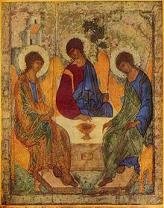 As I shared in the last issue of this article, medieval theologians collected and reflected on the definitions of prayer they found in the early Church Fathers before they formulated their own. Most frequently those had no claim to being definitions in the true sense of the term. Rather they described one or another aspect of this life-giving act which is prayer. For example, prayer is called a state of the mind which destroys all earthly thoughts or the manifestation of God’s glory.
As I shared in the last issue of this article, medieval theologians collected and reflected on the definitions of prayer they found in the early Church Fathers before they formulated their own. Most frequently those had no claim to being definitions in the true sense of the term. Rather they described one or another aspect of this life-giving act which is prayer. For example, prayer is called a state of the mind which destroys all earthly thoughts or the manifestation of God’s glory.
Three definitions have become famous in Christian tradition: Prayer is: (1) asking God for what is fitting; (2) an ascent of the spirit to God; and (3) the spirit’s colloquy with God. John ofDamascus unified the first and the second definition by writing that: Prayer is an ascent of the mind to God, or the asking God for things which are fitting. His definition has been borrowed by many others who came after him.
As human communication with God, prayer assumes this aspect: a humble asking for fitting gifts and the disposition to receive the gifts requested.
Prayer in the true sense of the word, according to Theophane the Recluse, is always done for the whole Church: the Fathers demonstrated this many times in interpreting the words of the Lord’s Prayer. While it is useful for a person to pray for the things he needs, it is more perfect to ask for heavenly things rather than earthly and temporal things.
To the question: Why our prayers are not always answered? the spiritual masters reply: This is because we pray too little and are sinners. The following advice is given to the person who prays: Do not be over anxious and strain yourself to gain an immediate hearing for your request. The Lord wants toconfer greater favors than those you ask, in reward for your perseverance in praying to Him. For what greater thing is there than to converse intimately with God and to be preoccupied with hiscompany.
